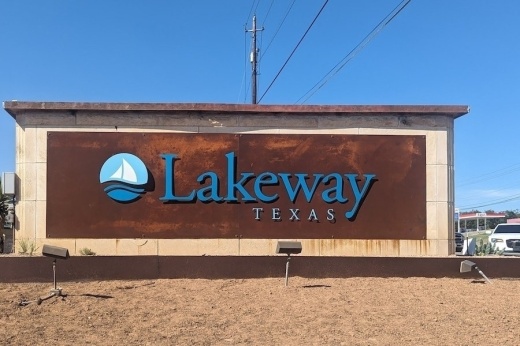Lakeway Chief of Police Glen Koen reported on results of the pilot program at the meeting. The license plate readers, or LPRs, include 15 Axon Fleet 3 cameras in police patrol cars and seven fixed-location Flock cameras.
The overview
The program has seen cameras installed in patrol cars averaging over 165,000 reads per month, Koen said. A "read" refers to a plate reader scanning a license and logging its information into a database.
The fixed-location Flock cameras logged over 1 million license plates in their first month of operation, Koen said.
From all of the data logged, 55 actionable items were presented in which a license plate was verified as being associated with a situation the police department was seeking to resolve, Koen said.
Those numbers are anticipated to rise, Koen said, seeing as officers faced an initial learning curve in implementing LPRs that has now been overcome.
The background
The license plate reader program began in November 2023 when Koen presented the initial idea to City Council, after which a formal policy was submitted and approved in March.
The fiscal impact of the project was estimated at $1,200-$3,000 per fixed unit, with the Fleet 3 system incurring no additional cost, according to the policy’s draft presented to council March 4.
That policy was implemented in two phases, Koen said. The first step involved activating the 15 patrol car readers, which went live March 29.
The second phase of implementation involved installing fixed-location cameras, which occurred after the police department secured a contract with Flock Safety—a popular vendor for LPR technology, according to previous reporting by Community Impact.
In total, seven fixed location cameras were installed, with one camera currently pending, Koen said.
Part of the program also involved the police department joining the Texas License Plate Reader Program, administered by the Department of Public Safety. This program allows participating agencies to voluntarily share any and all of their collected LPR data.
Advantages to joining this program include access to additional information to help solve cases and eligibility for the city to install cameras along RM 620, Koen said.
In July, City Council approved the police department’s request to join the Texas License Plate Reader Program.
What’s next?
Following the program’s approval, and the police department’s admission to the Texas License Plate Reader Program, Koen said he would like to discuss implementing LPRs along RM 620.
At some point, Koen said the police department may also be interested in adding cameras to additional locations on city right of way to add more strategic coverage, so that each ingress and egress across the city is covered by LPRs.





